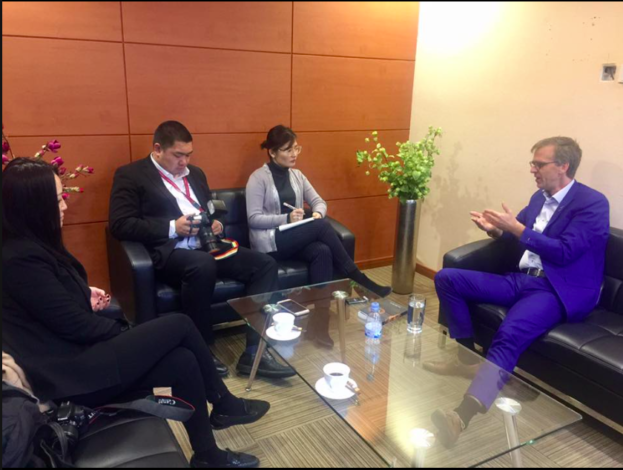
Today I got a question from a journalist that I have never gotten before. It was quite profound, and in answering her question I learnt a new approach to doing interviews/research for my books and speeches.
The interview happened in Ulaanbaatar and the journalist worked for Forbes Magazine. In a 1,5 hour interview we talked about business creativity, change and how Mongolian companies could become even better (amongst many other things).
The interview was going very well (I thought) but after one hour she stopped herself and said out loud (more to herself than to me): “I am not asking critical enough questions!”
It was like she was doing a check on herself to make sure the interview was going in the right direction.
(One thing I have learnt about the Mongolian way of thinking is that person with a nomadic mind is always checking if he/she is in the right place.)
We had a short discussion about the need for journalists to be asking though questions and then the interview continued.
At the end of the interview we got to the part where she asked me a question I had never gotten before. She said: “So, have you learnt anything from ME today?”
A journalist asking if the subject from the interview has learnt something from the interviewer (!)
What an innovative approach to looking at an interview.
I smiled, and told her how stopping mid-interview had inspired me to, from now on, never do a whole interview in one go.
Instead I will schedule a small break (it could be a micro break of 10 seconds, but still) to make myself stop. To make myself reflect. To make myself pause.
I will do it to make sure the interview is going in the right direction, that I am getting the material that wanted/will be happy with, and to ask myself if there might be new, additional questions that I should be asking.
Such a small, little simple technique to improve the quality of an interview.
Just like players during a football match use the break mid-game to change the strategy if needed.
Or why not go one step further and, like boxers during a boxing match, have multiple rounds of small stops where you stop to analyse what is going well and what needs to be changed. That way you can adjust your interview and be more sure of getting the result you want during the interview instead of realising afterwards that you “should have” asked something else.
That is what I learnt about becoming a better speaker (and writer) in Mongolia today.